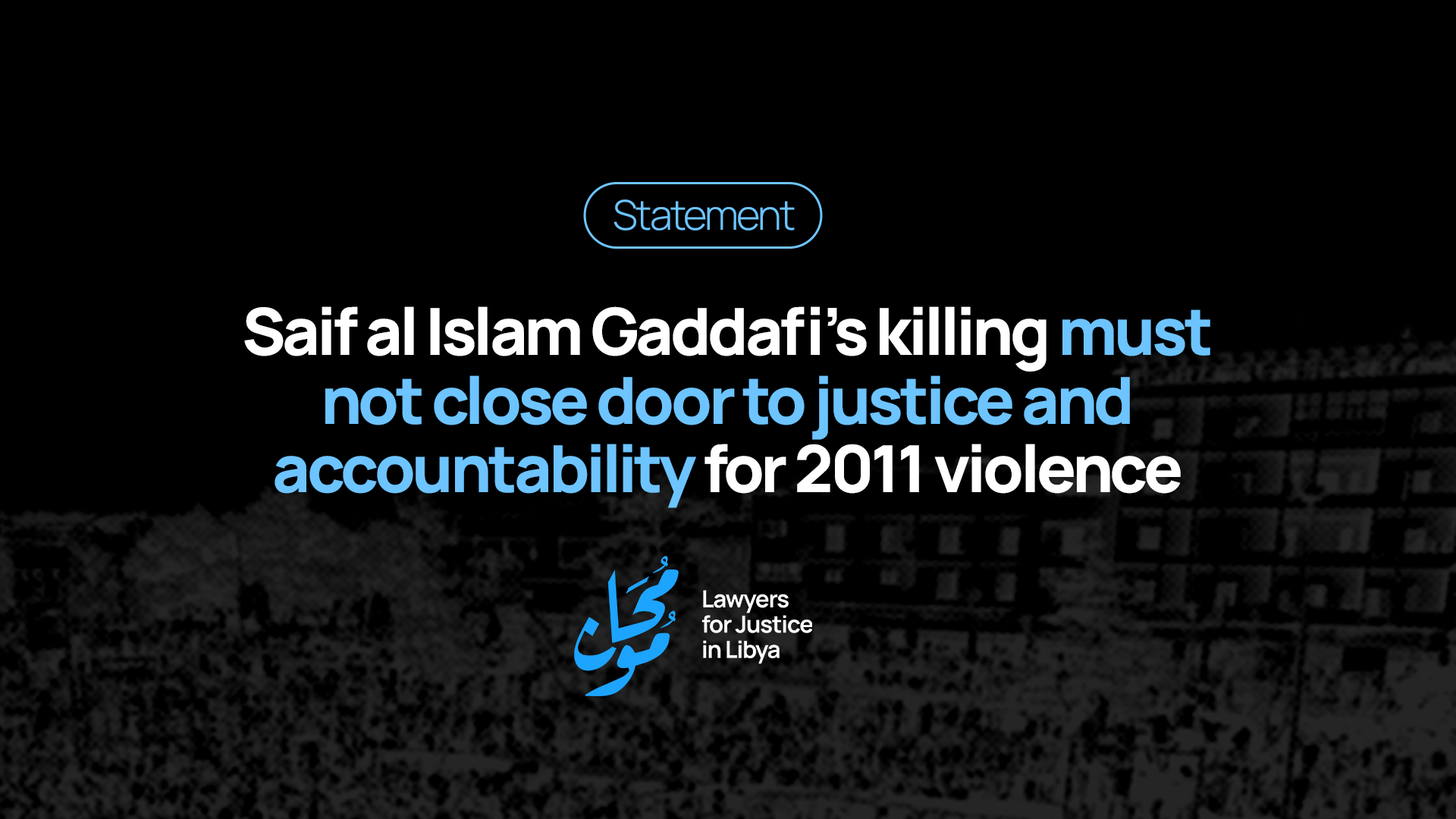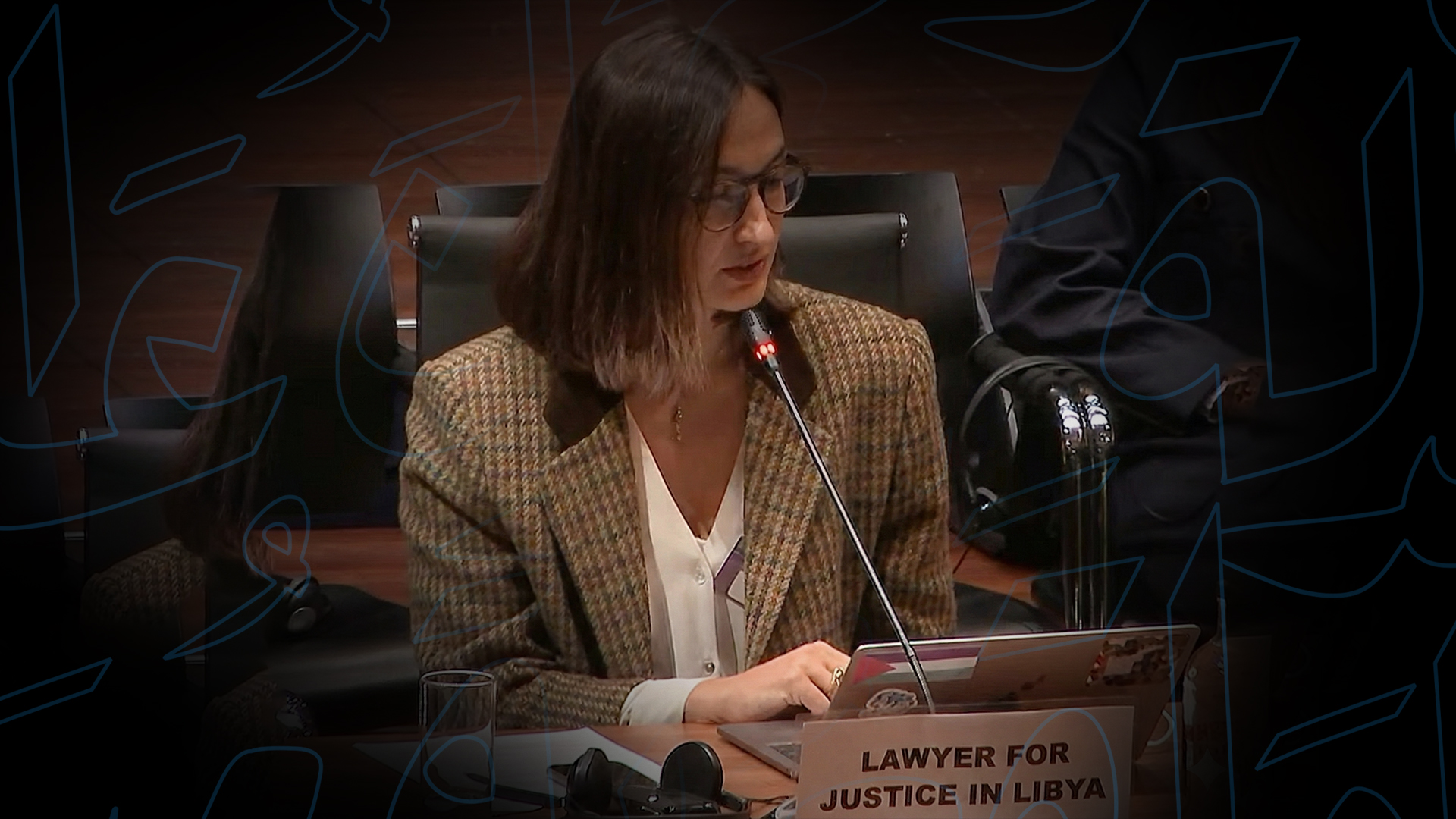LFJL signs the Tunis Declaration on the Arab Court of Human Rights
Lawyers for Justice in Libya (LFJL) participated in the conference hosted by the International Commission of Jurists (ICJ) and the Legal Agenda on 8 and 9 April 2015 to discuss the mandate and constitution of the Arab Court of Human Rights (the Court) in light of regional and international experiences. The outcome of that debate is the Tunis Declaration, which outlines the key shortcomings of the Statute of the Court (the Statute) and sets out essential revisions necessary to enable the Court to provide genuine access to justice and act as an effective safeguard for human rights in the region.
The Statute was approved by the League of Arab States (LAS) in September 2014 following a closed drafting process that included no public review. The current Statute falls far below international human rights standards as it:
- restricts access to the Court to states parties to the Statute and accredited, state-approved, non-governmental organisations, thereby denying direct access to individuals;[1]
- fails to safeguard judicial independence; judges are nominated by states parties and sit for short terms of four years before seeking re-election for a second term only[2], creating an insecure position and dependency on states’ nominations and risking the creation of an incentive to issue politically favourable decisions;
- Adopts a narrow set of criteria for the admissibility of cases, including the requirement that[3]applicants must have exhausted all local remedies, and have received a final judgement on the matter from their domestic system, not reflecting the reality that many LAS states may not attend to cases within a reasonable time frame or in circumstances of judicial independence; and
- does not provide for the Court to take account of international jurisprudence when applying the Arab Charter on Human Rights, risking that its judgments contradict the obligations of states parties arising from other international treaties, particularly given that the Arab Charter falls below international standards in key areas such as women’s rights, the application of the death penalty and the right to freedom of thought, conscience and belief.
In light of the severe limitations, the Tunis Declaration puts forward a set of amendments to the Statute which draw on the wealth of experience and best practice from other regional and international human rights justice systems.
Key changes requested by the Tunis Declaration’s signatories include revising the Statute so that it incorporates the UN Basic Principles on the Independence of the Judiciary; ensuring access to the Court by individuals and removing obstacles to access for NGOs; providing flexibility within the criteria for admissibility of cases; and guaranteeing that the Court will take full account of international human rights standards when applying and interpreting the Arab Charter on Human Rights.
Elham Saudi, LFJL’s Director, noted, “The current Statute of the Arab Court does not provide the framework for the adequate protection of human rights in the Arab region and risks undermining the international obligations of member states. LFJL urges members of the League of Arab States not to ratify the Statute in its current form, and advocates for its comprehensive overhaul in line with the Tunis Declaration.”
[1] Article 19 of the Statute
[2] Articles 6 and 8
[3] Article 18





